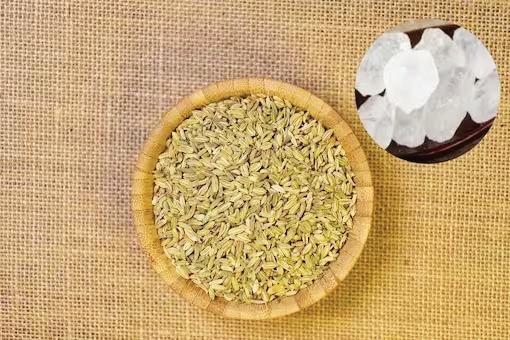
21 minute read
SLEEP DEPRIVATION CAUSES HEALTH CONCERNS
from 2 May 2023_
NEW DELHI, (IANSLIFE) A state of decreased response and motor activity, sleep is quickly reversible. The fact that all creatures experience this phenomenon in some way indicates that it probably has some evolutionary significance.
Sleeping takes up roughly one-third of a person's lifetime or eight hours per night. There are many explanations for why people slumber. These hypotheses encompass memory consolidation, energy saving and restoration.
Advertisement
For the best possible physical, immune, mental, and cognitive wellness, getting enough sleep is crucial. Nearly 30 per cent of adults (according to a study from the United States) report having trouble sleeping enough. Short sleep duration has been linked to a number of unfavourable health outcomes, such as decreased performance at work or school, slowed reaction time, an increased risk of accidents, mental health disorders like drug abuse, depression, and anxiety disorders, as well as complications during pregnancy and all-cause mortality. The inability to function well at work or in school because of insomnia can result in psychosocial problems, which then may make it challenging to keep up with interpersonal relationships. a bad work environment and decreased output. Depression and anxiety at the job may result from this.
Slow response times increase the chance of serious injury, permanent disability, and death in homes, workplaces, and roadside collisions.
Major health issues brought on by insomnia include mental health disorders like depression, anxiety disorders, and substance abuse. Insomnia and psychiatric disorders are inversely correlated, and it is frequently essential to treat both conditions concurrently in order to hasten recovery and increase the likelihood that both conditions will respond sustainably.
Drug abuse and insomnia are both related to mental conditions.
Patients with drug use disorders and chronic insomnia may have "forgotten" how to fall asleep on their own without the aid of a sedative. Increased chance of chronic illnesses like cardiovascular disease and hypertension. Your chance of developing heart conditions like coronary heart disease, an irregular heartbeat, and heart failure rises when you consistently get inadequate sleep. It raises the risk of diabetes and uncontrolled blood pressure, both of which can result in chronic organ damage. Reduced immunity brought on by insufficient sleep can cause repeated infections and slow healing.
Sleep deprivation can worsen pregnancy problems. It increases the possibility of preterm birth, C-sections, more painful labour, depression linked to pregnancy, and low birth weight babies.
DOES THE RIGHT FOOD HELP REDUCE STRESS?
Ancient science knew something that mainstream science is rediscovering, many illnesses can be treated by optimising our food habits. Diet is the most overlooked part of the stress-fighting regime but is equally equipped to manage stress as the other factors. Yes, even a chronic lifestyle condition can be prevented from soaring, provided you know what kinds of food to consume. What is stress?
Stress is our reaction to feeling threatened by any stimuli when we find ourselves in an unpleasant or dangerous situation. The effect of chronic stress on our bodies is harmful. In the long-term, over-exposure to stress can disrupt almost all body processes and put one at an increased risk of several health and lifestyle issues such as chronic headaches and migraine, anxiety and depression, digestive & sleep problems, heart diseases, high blood pressure, weight gain, etc. Given that chronic stress is a part and parcel of our lives, we cannot stop it but we can manage it by eating healthily.
Certain nutrients in food can keep stress at bay. Among the multiple ways of stress management, eating certain nutrients in food is the best. According to studies, just by being stressed, your bodily requirements for certain nutrients such as vitamins B & C, selenium, magnesium, etc. increase. Just by eating foods that are rich in these nutrients, you may be able to manage your stress levels. In fact, there are studies showing that quality nutrients taken longterm can have a positive impact on your body.
Research has also proved a relevant, decisive link between gut microorganisms, which live in our intestine, what we eat and how we ultimately feel. No wonder gut health is integral to mood, emotions, and psychological health management. So, managing stress with food is a great tactic for overall health. A well-balanced, nutritious diet is the single most important element for good health. Next time you feel stressed, observe your palate and adjust it accordingly. Here are some great food options that are known to reduce stress levels:
Dark chocolate: Is said to work in two ways – by having a chemical and emotional impact. Dark chocolate is rich in antioxidants and helps lower stress hormone levels in the body when enjoyed in moderation, as traditionally bereft of any unnecessary surplus sugar.
Warm milk: Known to induce a good sleep-in night and aids stress management when sipped right before retiring to bed. Warm milk has a relaxing effect. Rich in calcium and vitamin D, it helps to maintain the bone and is also known as a muscle relaxant and mood stabiliser.
Nuts & seeds: Teeming with magnesium, healthy fats, and nutrients; nuts and seeds act as a stress-busting snack when consumed in moderation. Almonds, flaxseed, pistachios, sunflower seeds, and walnuts are great options to choose from.
Foods high in fibre: Fibre-rich foods are hailed as gut-friendly and may lower stress, anxiety, and depression. To add more fibre to your diet, eat adequate amounts of fresh fruits, leafy vegetables, nuts & seeds, and many more. You may also opt for whole-grain-based foods such as whole-grain breakfast cereals.
Whole unprocessed grains: Known to provide a mood-stabilising effect by spiking serotonin (a boosting-mood hormone that decreases stress) levels. Thus, resulting in better concentration and focus. Choose healthy, unrefined carbohydrates such as unprocessed grains for better nutrition and adequate fibre intake that takes longer to digest and thus releases blood sugar gradually over a period.
It is estimated that around two billion cups of coffee are consumed daily worldwide.

This demand has led to considerable diversification in the ways of preparing coffee as well, including the creation of coffee capsules. The popularity of these capsules has divided the public opinion because this method of preparation, which uses single-use individual packaging, is harmful to the environment.
As researchers working on assessing the environmental impacts of products and services, we often discuss coffee’s carbon footprint. We decided to study the carbon footprint of several techniques used to prepare coffee at home, and it turns out that coffee capsules aren’t the biggest carbon culprits.
The life cycle of coffee
The pollution resulting from the preparation of coffee at home is just the tip of the iceberg. Before you can enjoy a cup of coffee, it goes through several steps, starting from the agricultural production of the coffee beans, their transport, the roasting and grinding of the beans, right up to the heating of the water for the coffee and the washing of the cups it is poured in.
These steps, common to all modes of coffee preparation, consume resources and emit greenhouse gases (GHG).
To adequately compare the carbon footprint of several coffee preparation methods, it is important to consider their entire life cycle: from the production of coffee, through the manufacture of packaging and machinery, to the preparation of coffee and the waste produced. Comparing four coffee preparation methods We decided to study this further and conducted an extensive literature review on the subject. We then measured the carbon footprint of coffee by comparing four methods of preparing 280 millilitres of coffee, namely:
1) Traditional filter coffee (25 grams of coffee)
3) Brewed coffee (French press) (17 grams of coffee)
2) Encapsulated filter coffee (14 grams of coffee)
4) Soluble coffee (12 grams of coffee), also known as instant coffee
Our analysis clearly showed that traditional filter coffee has the highest carbon footprint, mainly because a greater quantity of coffee powder is used to produce the amount of coffee.
SAUNF-MISHRI, THE SWEET TREAT TO BOOST YOUR EYESIGHT
Sugar candy and fennel (sauf and mishri) not only offer a cooling effect to the body but also act as a great digestive aid. Although commonly consumed as an after-meal mouth freshener, combining these two ingredients can help to regulate body temperature and promote overall health during the summer season.

Benefits of eating Sugar candy (Mishri)
As per a recent news report by HT, sugar candy (mishri) offers several advantages over regular sugar. It is known to be easily digestible, providing a subtle sweetness that is often preferred over traditional white sugar. People commonly consume sugar candy as a refreshing treat, but it also has other health benefits.
For example, if you’re dealing with dry cough or stubborn phlegm, it can be effective in loosening it up. Additionally, sugar candy can provide natural coolness and help alleviate irritation. If you’re looking to beat the summer heat, drinking sugar candy water can be a great way to cool down. Moreover, for those experiencing nausea or acidity, chewing on it can provide quick relief from these symptoms.
Benefits of eating sugar candy with fennel seeds (Saunf and Mishri) Combining sugar candy with fennel not only creates a tasty treat but also offers a range of health benefits. As a popular after-meal mouth freshener, consuming fennel helps to improve digestion, and when paired with sugar candy, it can speed up the digestive process.
The Importance Of A Workout Regime To Check Diabetes
Physical activity or a regular workout regime is a key element in managing type 2 diabetes. Until recently studies showing the significance of exercise to manage diabetes were very less. However, now we can see that there is plenty of research highlighting the importance of exercise to manage blood glucose levels effectively.
The research indicates that participation in a regular workout regime improves blood glucose control, preventing or delaying the onset of type 2 diabetes, and boosts your body's sensitivity to insulin, countering insulin resistance.
Also, regular physical activity positively affects blood pressure, and cardiovascular health, lower harmful LDL cholesterol and triglycerides raise healthy HDL cholesterol, strengthens muscles and bones, reduces anxiety, and improves your general well-being.
Five Reasons Why Men Should Find Their Signature Fragrances Right Now

NEW DELHI, (IANSLIFE) The sense of smell is more than merely understanding complex fragrances. It is related to uplifting our mood and striking back some memories that we cherished ages ago. Be it the aftershave that our father wore or the perfume that our mother smothered us with on certain occasions, a distinctive fragrance goes a long way to be recognised even after ages. Taking a cue from the same, the fragrance that we wear has a long-lasting impact on the minds of those who we engage with for a long time. It does the talking about our personality even before we talk. "While choosing a fragrance, men tend to stick to one fragrance and merely experiment with new ones. They often give in to the fragrance used by most men or the newest arrivals on the shelves without understanding whether the fragrance suits their personality or not. Though most-used fragrances can be smelling good, they will not give you a distinctive edge in the crowd," says Neeraj Bhensdadia, Co-Founder of Upsilon - a perfume brand in India. "It hence becomes imperative for a man to have a signature fragrance to have the feeling of being arrived irrespective of the occasion. From being noticed by everyone in the room to letting you be in your element throughout your presentation at the occasion, a signature perfume has an array of benefits." Here are five reasons why men should find their signature fragrances right away outlined by Neeraj. To smell ideal - All perfumes are certainly goodsmelling but just like one size fits all approach doesn't work practically, not all perfumes are made for the unique personality that an individual carries. There needs to be a perfume that smells better than them all on offer for the masses. One must go for a handpicked, select fragrance that is unusual to be picked by many, which of course, is in line with their unique personality traits. To be smelling consistent throughout the day, the collection must include the stronger concentration - Eau De Parfum. After the shower, moisturise yourself well and wear an Eau De Parfum with two or three sprays to keep the fragrance not too light or too strong. Uplifts your mood - A perfume that goes very well with your personality will certainly help you keep your mood uplifted all the time. Out of the five senses, smell is the most powerful one. Given its complex nature, it is bound to surface underlying emotions and make you feel better. You might be using a particular fragrance for a particular occasion. Like, you might have used your signature perfume on your wedding day or any other occasion, and fragrances can trigger your best memories which will ultimately make you feel better and uplift your mood.

Boosts Self-Confidence - Just like how your signature perfume brings a sense of optimism within you by uplifting your mood, the change can be witnessed in your demeanour from the outside too. You feel more confident in your appearance and your element. To smell good is to feel good. While being noticed and complimented by others, you get this boost of self-confidence, the credit of which goes to the signature fragrance that you wear. Turns heads towards you - How you accessorize has a certain impact on the people at the place where you are arriving. The feeling of being arrived and seeing most of everyone's head turning towards you is cherished by everyone. Be it for your car or the outfit that you wear, the feeling is unique in its way. Likewise, your signature fragrance can turn heads to relish the unique smell and how it suits you. It makes you appear more attractive. It leaves a long-lasting impression wherein people even recognise you over time for smelling uniquely attractive. Statement of Class - Signature perfumes are choicest like your select apparel, watches, and wine collection and hence are a statement of a class of its own. It defines how you are particular about presenting yourself in a certain fashion and engaging in only the best and rare when it comes to your collection of assets. A hint of your signature fragrance can speak volumes about your class and demeanour as compared to others. Though selecting the signature perfume requires a diligent understanding of how you like to present yourself that sets you apart from the crowd, it is not necessary that they must be expensive to be unique. With the evolving consumer market and increased appetite for unique offerings, several homegrown perfume brands in India suit the needs of the modern-day consumer with a unique hint that suits their personality. A little research is all that's required.
Bio Remodelling Can Turn The Clock
Nature has its modus operandi; while most facets are beautiful, others may not be appealing. One such inevitable aspect is maturing of the skin. The late 20s or early 30s are usually marked with the first indications of ageing. Visible signs of ageing are a cause of concern among most people that oftentimes drive them to the reckless use of anti-ageing creams. Have you been applying anti-ageing creams only to see no noticeable difference in your skin appearance? You are not the only one to face disappointment. These topical administrations work externally and therefore impart temporary results. Coming in all shapes and sizes, antiageing creams fail to work on the root cause of ageing. Rightly said, necessity is the mother of invention. One such new-age innovation to tackle skin ageing with proven long-lasting results is bio remodelling. Let us understand what it is and how it delivers the star ingredient - hyaluronic acid - deep into the skin in just the right way.
Too many cooks spoil the broth! Going by the latest skincare trends, an ideal skincare regimen includes a plethora of products and it becomes confusing what, when, and how to take care of the skin. Turns out there are too many serums and creams. For instance, one to boost collagen synthesis, one to moisturise, and one to keep skin sagging at bay.
Hyaluronic acid: the holy grail in dermatology
More than a fad, hyaluronic acid is here to stay in the skincare ageing as long as there is a demand to cease the appearance of ageing signs. This acid is naturally present in our bodies connective tissue and is responsible for the plump and youthful look. However, as we age its synthesis begins to decrease and results in what we call ageing skin. Hyaluronic acid works like pixie dust to fix all ageing issues: it holds water to the skin's surface, thereby keeping it moisturized. In addition, it improves skin elasticity.
NEW DELHI, (IANSLIFE)
Just as important as eating well is getting a good night's sleep. The majority of us choose to take medications rather than alter our lifestyles to address our problems. Numerous things we do have an adverse effect on how well we sleep, which unwittingly has an effect on our health. We can dramatically improve our quality of life by altering our sleeping habits. Priyanka Salot, Co-founder of The Sleep Company share five behaviours that make it difficult to fall asleep: Use of screens before bed: We all enjoy using our phones, laptops, and computers in the hours before night, but have you ever questioned why doing so is bad for your health? This is so that the screen's light won't interfere with our bodies' normal sleep cycle. This explains why so many individuals struggle to fall asleep after using their laptops or watching television right before bed. So, in order to get a good night's sleep, it is advised that you restrict screen time before bed. In fact, relaxing activities that can aid in getting ready for bed include reading a book or keeping a journal. Working out just before going to bed: Exercise is necessary, but it's not a good idea to work out hard right before bed. Over time, it lowers the quantity and quality of sleep as well as depletes the body's energy stores. Try stretching or yoga before night instead of working out because these activities are less demanding on your energies and are less rigorous.

Mattress type: It's critical to avoid placing strain on our muscles and joints at the end of the day. It can be difficult to sleep on a mattress or pillow made of foam. Many people roll and toss in their sleep as a result of mattress pain. Avoiding a memory foam or standard mattress in favour of a SmartGRID Mattress may be a wise decision if you experience sleep interruptions or are perpetually exhausted. The SmartGRID Mattress, in contrast to other mattresses, keeps our body cool while we sleep, preventing night sweats, and it also conforms to our body shape, minimising back pain. High caffeine consumption around dinner and bedtime: While many of us might not be aware of it, coffee use may be keeping us from falling asleep. While it does provide us with the stamina to stay awake, it also causes our minds to race and could make us uneasy. Because of this, consuming coffee right before bed or right after dinner is like working against our will, making it harder to fall asleep.
Ambience: The impact of light and noise on sleep: Ambience is an important factor in a good night's sleep. People rightly associate bright light as the key hindrance to sleep, but fail to understand that noise is also a major concern. It is extremely difficult to fall asleep when someone is talking loudly in the next room or outside our window. As a result, creating a quiet and suppor tive bedroom is an important aspect of sleep hygiene. We must not underestimate the importance of adequate sleep for maintaining a healthy lifestyle. Like in every other situation, a little effort goes a long way and will have a significant impact on one's quality of sleep.
Pepsi Onboards Samantha Ruth

PRABHU AS ITS BRAND AMBASSADOR
NEW DELHI, (IANSLIFE) Personifying the youth's unwavering passion and unshakable spirit through its disruptive narratives, Pepsi unveils yet another rendition of its empowering new brand positioning 'Rise Up, Baby!'. The campaign features actress, youth icon, and an inspiration for women across the country, Samantha Ruth Prabhu. With this campaign, Samantha joins Pepsi's starverse as one of its newest brand ambassadors. All set to redefine the cliches around gender roles in society, the stirring and inspiring campaign aims to encourage women to follow their passions and irrepressible beliefs to break the societal norms that the world has created for them. Portraying the archetypal situations an Indian woman faces daily, from being questioned for not being married by a certain age, shamed for staying out late for work or taking up a lead action-oriented role, the campaign is a commentary on the millions of passive comments and pressures that women go through in life. The gripping campaign through its powerful three words, 'Rise Up Baby', pays homage to the free-spirited women who do not let others define their worth, and march to their own rhythm. Commenting on the campaign, actress Samantha, said, "I strongly believe that women should always follow their hearts, shattering the stereotypes that society has set for us. The campaign, was, therefore, even more special for me as it exemplifies the unshakable and persistent spirit of the women of this generation while inspiring them to wear their quirks on their sleeves. I am truly excited to be associated with Pepsi and cannot wait for fans to get inspired by the campaign and 'Rise Up, Baby!"
Saumya Rathor, Category Lead, Pepsi Cola, PepsiCo India, said, "Pepsi has always strived to reflect the synergy of the younger generation. Through our last two campaigns, we aimed to portray the irrepressible spirit of the youth as they rise above societal norms. For this campaign, our focus was to offer an empowering campaign for the woman of India and pay tribute to their unwavering self-belief and self-confidence. Samantha Ruth Prabhu is the epitome of the independent, bold, and free-spirited modern Indian women, and therefore resonates perfectly with our positioning of 'Rise UP, Baby!'. We welcome Samantha to the Pepsi family and are extremely thrilled to work with her for many more disruptive campaigns going forward."
ASTHMA AND DIET: FOODS TO AVOID AND CONSUME THIS WORLD ASTHMA DAY 2023
Asthma is an airway disorder characterized by cough, chest tightness and wheeze. It is caused by airway narrowing due to inflammation. It is treated with inhaled bronchodilators and steroids. However, avoidance of triggers, such as food, pollens and dust also forms an important part of treatment of asthma. Even though, diet is not a direct cause of a sthma, it can potentially worsen or trigger asthma symptoms in some individuals. Dr Asmita Mehta, Professor and Head, Department of Respiratory Medicine, Amrita Hospital, Kochi explains the foods to eat and the ones to avoid that can help help manage asthma:
HEALTHY DIET: WHAT TO EAT?
Eat a healthy and balanced diet: A diet rich in fruits, vegetables, whole grains, and lean proteins, that are rich in antioxidants can help support overall health and can help reduce airway irritation and inflammation
WHAT NOT TO EAT? AVOID FOOD TRIGGERS
Avoiding foods that contain additives such as sulfites and preservatives can help prevent asthma flare-ups. Additionally, limiting sodium, refined carbohydrates, and saturated fats can help reduce inflammation and keep airways open. As mentioned earlier, certain foods and food additives can worsen asthma symptoms. Keeping a food diary can help identify these triggers and avoid them in the future.
Anti- inflammatory foods:
Fatty fish like salmon, nuts, seeds, and leafy green vegetables have anti-inflammatory properties. Such foods can help reduce inflammation in the body and airways.
Stay hydrated:
Drinking plenty of water can help keep airways hydrated and reduce the likelihood of asthma symptoms.
Nutritional supplements:
Some supplements like Vitamin D, magnesium, omega-3 fatty acids and probiotics may help reduce inflammation and manage asthma symptoms. Such supplements may be taken with concordance of your healthcare provider.
While diet can play a role in managing asthma symptoms, it is not a replacement for medical treatment. A healthy diet can help to manage asthma symptoms by providing important nutrients for respiratory health and reducing inflammation in the body.

Yoga Poses Asthma Patients Can Do Safely
Sukasana: Sukasana is said to be a simple pose which can be performed by anyone. The relaxing pose is known to provide relief in asthma by focusing on breathing and lung function. It also helps in reducing stress. To perform Sukasana, start by sitting on ayogamat with cross legs. Now, take the meditation position by bringing both your hands in front of your knees. Now, close your eyes and take a deep breath. Now, release the breath. Now, repeat deep breathing for at least five minutes.
Ardha Bhujangasana : This pose is said to be effective for enhancing breathing and improving spine flexibility. You have to first lie straight on your stomach. Now, bring your hands in front and place your palm on the floor making an L with your elbows. Next,dolight pus h-ups by keeping your legs intact and just lifting your upper body with the support of your hands.
Badhakonasana : Start by sitting with your legs straight. Now, fold your legs and bring both the feet together making a Namaste position. Now, press the feet together with your palms and move your legs just like a butterfly fly. Badhakonasana which is also known as the butterfly pose stimulates blood circulation and helps relieve fatigue by bringing down asthma symptoms.
CAN IRREGULAR PERIODS AFFECT WOMEN'S HEART HEALTH?

Irregular periods are a common issue among women of all ages. While they may not seem like a cause for concern, recent research suggests that irregular menstrual cycles could be a sign of underlying health problems, including heart disease. Heart disease is the leading cause of death in women worldwide, making it crucial to understand the link between menstrual irregularities and heart health. Polycystic ovarian syndrome is a part of the metabolic syndrome characterized by insulin resistance and excess “male" androgen hormone levels. This leads to irregular periods, weight gain, abnormal lipid profile and diabetes. There is also association noted with sedentary lifestyle, onset of depression and hypertension.
CAN STRESS CAUSE MIGRAINE AMONG WOMEN? FIND OUT
Chronic migraine is a medical condition that is characterized by intense headaches that are accompanied by throbbing pain for at least 15 days per month. These migraines may cause nausea, vomiting and sensitivity to bright light and high decibel sounds and interfere with a person’s ability to perform daily tasks, further impacting their quality of life. While 90-95% of people suffer from severe migraine during their lifetime, the condition is more common among women than in men. Women experience 2-3 times more recurrent headaches than men and their migraines mostly occur during adolescence. As hormones play an important role in the causation of migraine; therefore, women are more prone to it. Chronic migraine can be caused due to several factors such as lifestyle and genetic factors.

Tips To Maintain Your Health While Enjoying A Buffet

FROM BATHING RIGHT AFTER MEALS TO HAVING LUNCH POST 2 PM: COMMON MISTAKES TO AVOID FOR BETTER DIGESTION
We all know the role the gut plays in keeping the body healthy and the immune system strong. As such, it is extremely important to consume a gutfriendly diet. But, did you know that while a healthy diet is essential, what you do after having your meals is also equally important? “In Ayurveda, good digestion is the foundation of health and well-being. Your metabolic fire, or agni, transforms food into the nourishing essence that supports the body’s function and existence. Agni governs the digestion and transformation of food into more subtle substances that nourish our bodies. A steady agni ensures your body functions properly, and an impaired agni leads to the buildup of metabolic toxins – ama, the root cause of diseases,” Dr Archana Sukumaran, Ayurveda expert at Kerala Ayurveda, told indianexpress.com in an earlier interaction.
As such, Dr Dixa Bhavsar Savaliya, an ayurveda expert, took to Instagram to list some common mistakes that affect our digestive system. Sharing the tips, Dr Dixa wrote, “Avoid these 5 common mistakes in your daily routine to improve your digestion without any medicine.”
Bathing right after Meals
According to Ayurveda, every activity has a specific time period, and doing it beyond that limit can harm the body. It is suggested to not take a bath for 2 hours after having a meal. “The fire element in the body is responsible for food digestion, so when you eat, the fire elements get activated and result in increased blood circulation for effective digestion. But, when you take a shower, the body temperature goes down slows the digestion,” she said. “Taking a bath immediately after meals cools down your body. A sudden drop in body temperature will dampen your agni and lead to a sluggish metabolism. Since an impaired metabolism is a major reason for all diseases, according to Ayurveda, this will lead to various diseases. Ideally, taking a bath 2-3 hours before meals would be best,” said Dr Archana.
Walking right after meals
While walking for some time after a meal is beneficial, indulging in heavy physical activities and long walks is not recommended. “Walking long distances, swimming, exercising — all these activities are Vata aggravating and shall disturb digestion, leading to bloating, incomplete absorption of nutrition and feeling of discomfort post meals,” Dr Dixa said.

Vikas Chawla, Ayurveda Expert, Vedas Cure, added, “A common misperception that needs to be disabused is that walking right after having dinner meals or breakfast supper ensures fast digestion. It is not true. Longdistance walks and exercising are physical activities which aggravate Vata dosha. This hampers nutrition absorption of meals and precipitates feelings of discomfort, pain, and bloating.”
Having lunch after 2 pm
Ayurveda recommends having lunch in the afternoon anytime between 12 to 2 pm when the sun is at its peak. “It is that time of the day when pitta is dominant, which helps digest food easily. For the same reason, Ayurveda considers lunch to be the most important meal of the day and recommends it to be moderate to heavy,” Dr Dixa reasoned.
“People who go for intermittent fasting and fad diets often make the mistake of skipping lunch or eating after 2 pm to maintain long breaks between meals. But it results in patchy digestion and fat accumulation,” Chawla added. Consuming curd at night
Many of us are habitual of adding curd to our dinner thinking that it aids digestion, however, Ayurveda suggests avoiding it at night. “Curd is sour and sweet in taste and it increases Kapha and Pitta dosha in the body. During the night, there is a natural predominance of Kapha in the body, and having curd at this time can lead to excess kapha buildup. It could also sit in the gut and make you feel constipated,” said Dr Dixa.
Sleeping right after meals
Don’t sleep right after your meals; a gap of at least 3 hours between meals and sleeping time is recommended. “During sleep, the body repairs, heals, and restores while the mind digests thoughts, emotions, and experiences from the day. For this reason, Ayurveda recommends that the last meal of the day be relatively light and completed three hours bed,” added Dr Dixa.








